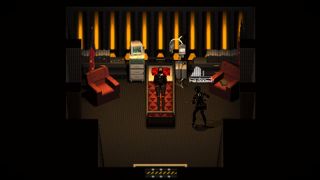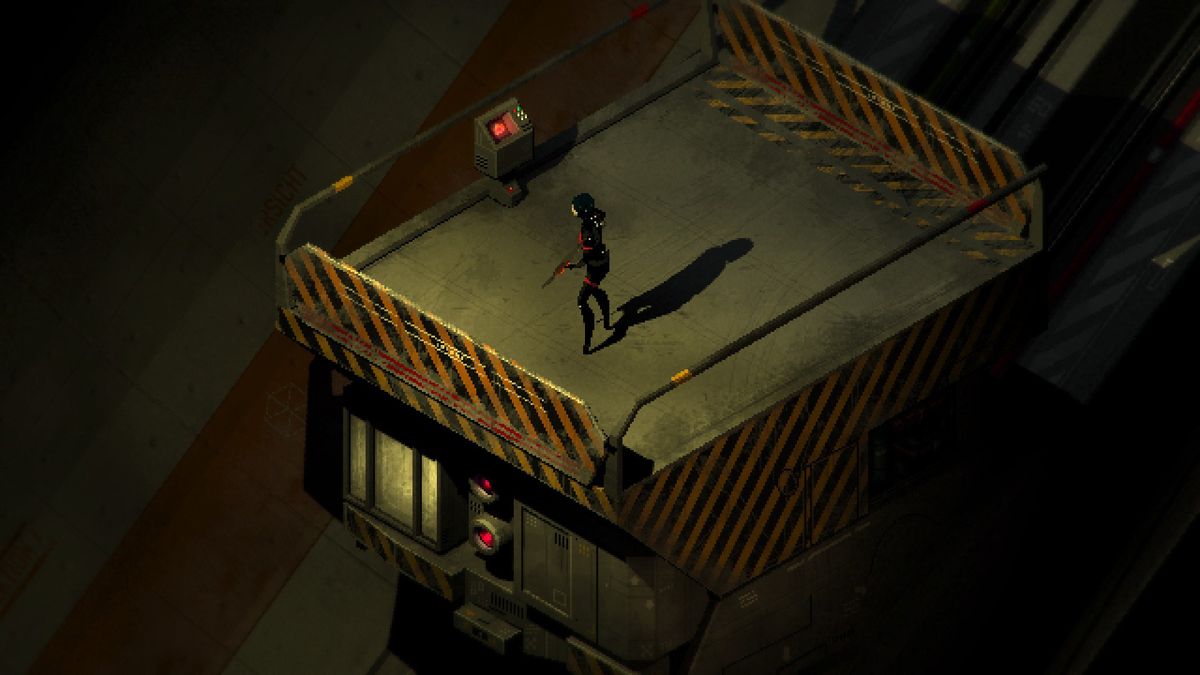12DOVE Verdict
Signalis conjures a memorable retro-futuristic vibe with its art design, matched with a story that explores the terrifying extremes of sentient life. But its Resident Evil inspired systems feel overly mechanical and fail to produce tension, draining energy from a potentially chilling scenario.
Pros
- +
The PS1 style visuals are murky and atmospheric
- +
Some puzzles require close attention to your surroundings
- +
A complex narrative that deals with horrifying themes
Cons
- -
Monster encounters are limp and clumsy
- -
Too much busywork around collecting and organising items
Why you can trust 12DOVE
It's hard to escape the sense in Signalis that someone on the rose-engine development team played the original Resident Evil and decided the best parts were unlocking doors and managing your inventory. In many ways, this is a more brooding psychological horror experience than Capcom's series, with a storyline that slowly peels back the skin on a nightmarish reality. Yet so much of its duration is concerned with the practical logistics of item-based puzzles that it almost slides into parody of the classic survival horror template.

Release date: October 27, 2022
Platform(s): PC
Developer: rose-engine
Publisher: Humble Games
At first it seems that the emphasis on mundane mechanics might fit with the perspective of Signalis' main character, Elster. She is after all a Replika, a kind of genetically engineered cyborg built to fulfil specific tasks and aid an assigned human colleague. So as she sets out to explore an apparently deserted mining facility to look for her missing partner, maybe she really would be more perturbed by the lack of functionality in the lift system, rather than, say, discovering there are other Replikas still around, and that they've transformed into mindless killing machines.

But Signalis isn't the story of Elster's inhuman detachment, quite the opposite. Much of the plot probes the idea that Replikas have more individual personality and emotional capacity than their creators let on, and are even tortured by hallucinations and memories of a previous human lives. Scattered lore around the mine's offices, meanwhile, details how they're controlled by an authoritarian body which punishes the mildest of transgressions and violently crushes potential rebellions. Beneath the primeval presence that's now seeping through the station, then, you can still feel the remnants of manmade oppression, embodied in security cameras that track your every movement.
Signalis' ancient and modern horrors are equally well-served by a visual aesthetic that evokes the low-poly limits of the PS1 age, and presents the world from a zoomed-out almost top-down perspective. Angles are spiky, edges jagged, and textures grimy. Combined with a scarcity of light, this creates an occult-like strangeness around clinically square offices and staff quarters that could otherwise have believably functioned as active work and living spaces. Audio effects too seem to crawl around in the mind. Not so much the overt shrieks of rogue Replikas when they sense your presence, but the scratchy noises from a computer disc drive, or the crackle and whine of radio signals.
Exploring humanity

As you spiral deeper into the organs of this place, however, expecting the atmosphere to envelop you, the digital logic of the level design remains too high in the mix. Combat against the Replikas is a calculated, undramatic affair, stunted by characterless foes – the Replikas come in various models, but most are effectively zombies – and a stubbornly ineffective targeting system. Your adversaries aren't terrifying monsters stalking the corridors, they're minor obstacles that may or may not force you to expend ammo and healing resources, depending how difficult they are to avoid.
Indeed, many simply get in the way of your primary task – collecting and delivering items. Enter a new area and you encounter a string of locked doors, or machines that won't work until you've located the right battery or fuse, plus a large exit portal demanding multiple inputs to open. Now it's a treasure hunt, where you gather keys and objects of note that grant access to more rooms and more objects and so on.
Sometimes it's mentally captivating trying to keep all the routes and gates in mind (the map is helpful here), especially when you come across items whose uses aren't immediately obvious, or have to dive into your library of found documents for codes and clues, or grab paper and pen to note down sequences or sketch diagrams. But in between such delights a lot of time is devoted to shuttling across linking hallways to insert another key in another lock.













And the real drag here is that Signalis adheres too closely to Resident Evil's aging rules by limiting your carrying capacity to just six items. This throttling bureaucracy goes hand in hand with Resident Evil-style item chests and save rooms, from which you make circular trips, grabbing a few supplies then stashing them before the next excursion. But each time you head out somewhere new, you don't know exactly what you'll need.
You might try traveling light only to bump into a stack of enemies and find yourself short on ammo, or tool up for such a scenario and discover a cache of items you can't pick up – back you go for an extra round trip. It's doubly frustrating because there are so many puzzle items to pocket, and when you usually need to carry at least a gun, an ammo clip, and your torch, six slots just isn't enough.
All this administrative juggling also takes its toll on a story that's hard enough to follow even when it has your full attention. With a cast of characters that can be difficult to tell apart, crucial details buried in reams of documents, and a penchant for surreal interludes, it takes some work to keep up with the haunting undercurrent of Signalis. At times it does seem worth the effort, because there are intriguing themes burrowing away behind the scenes. But then you find a key that prompts yet another trek across the current area, and perhaps it doesn't after all.
Signalis was reviewed on PC, with a code provided by the publisher.
More info
| Genre | Horror |
Jon Bailes is a freelance games critic, author and social theorist. After completing a PhD in European Studies, he first wrote about games in his book Ideology and the Virtual City, and has since gone on to write features, reviews, and analysis for Edge, Washington Post, Wired, The Guardian, and many other publications. His gaming tastes were forged by old arcade games such as R-Type and classic JRPGs like Phantasy Star. These days he’s especially interested in games that tell stories in interesting ways, from Dark Souls to Celeste, or anything that offers something a little different.













